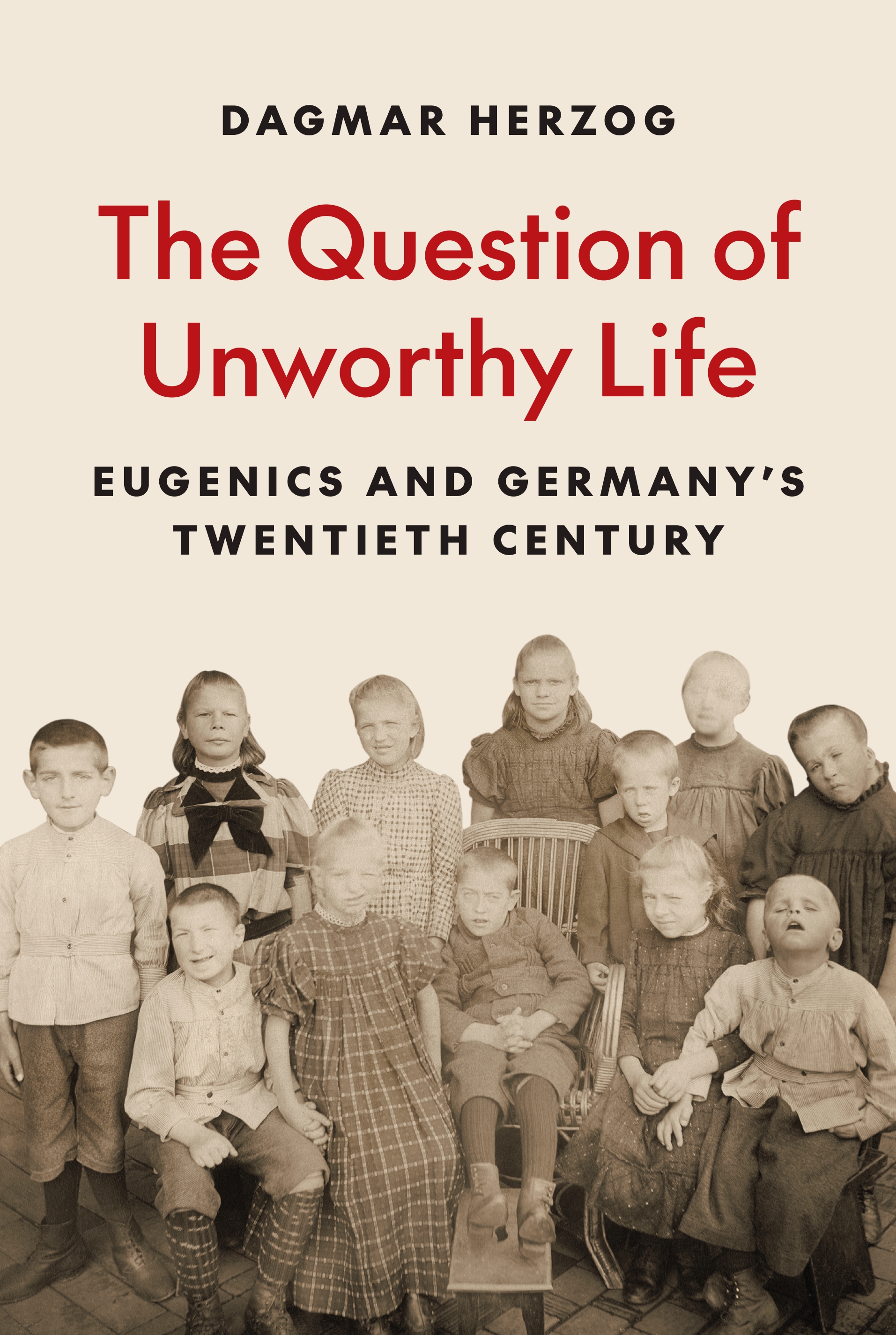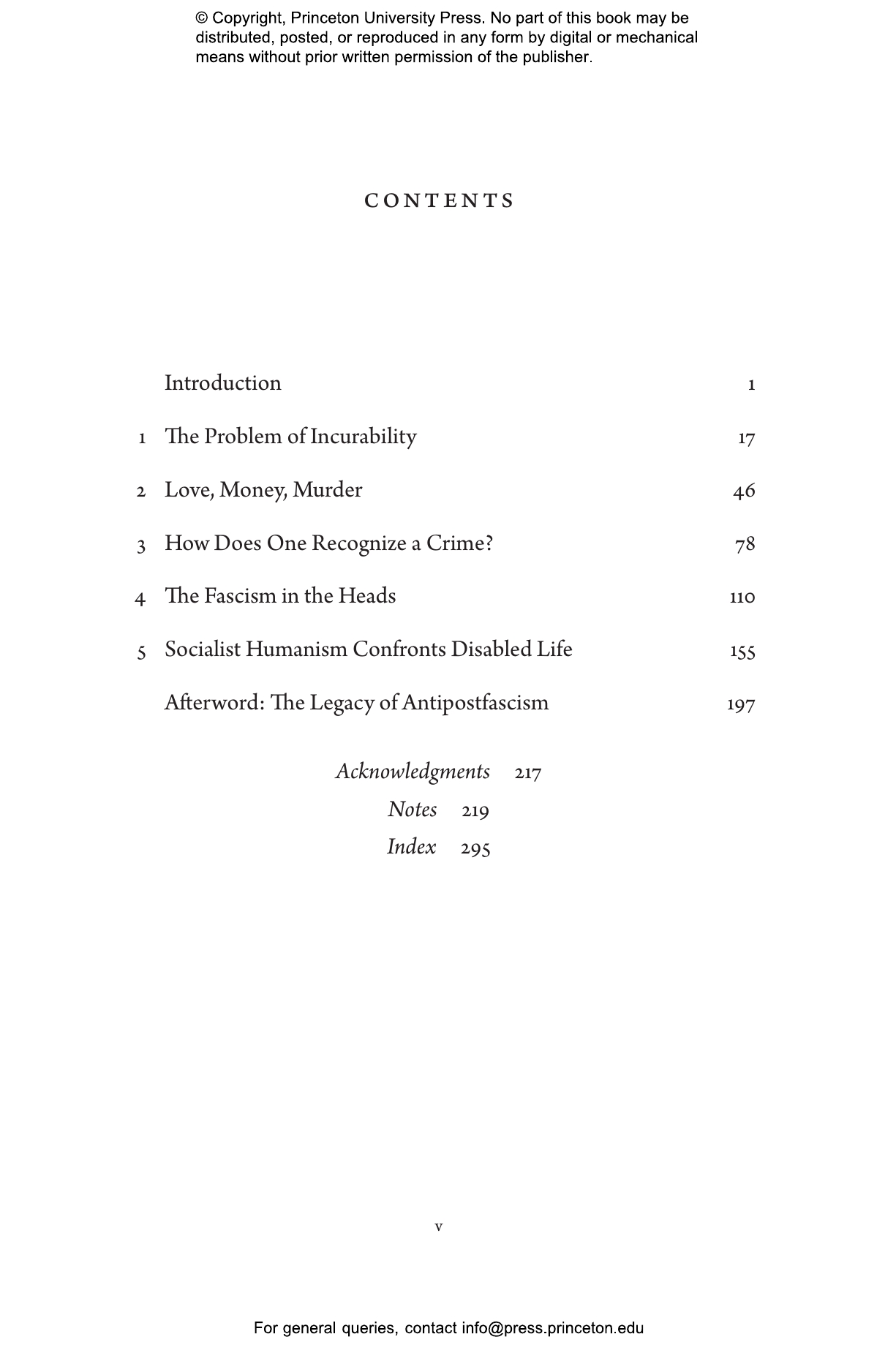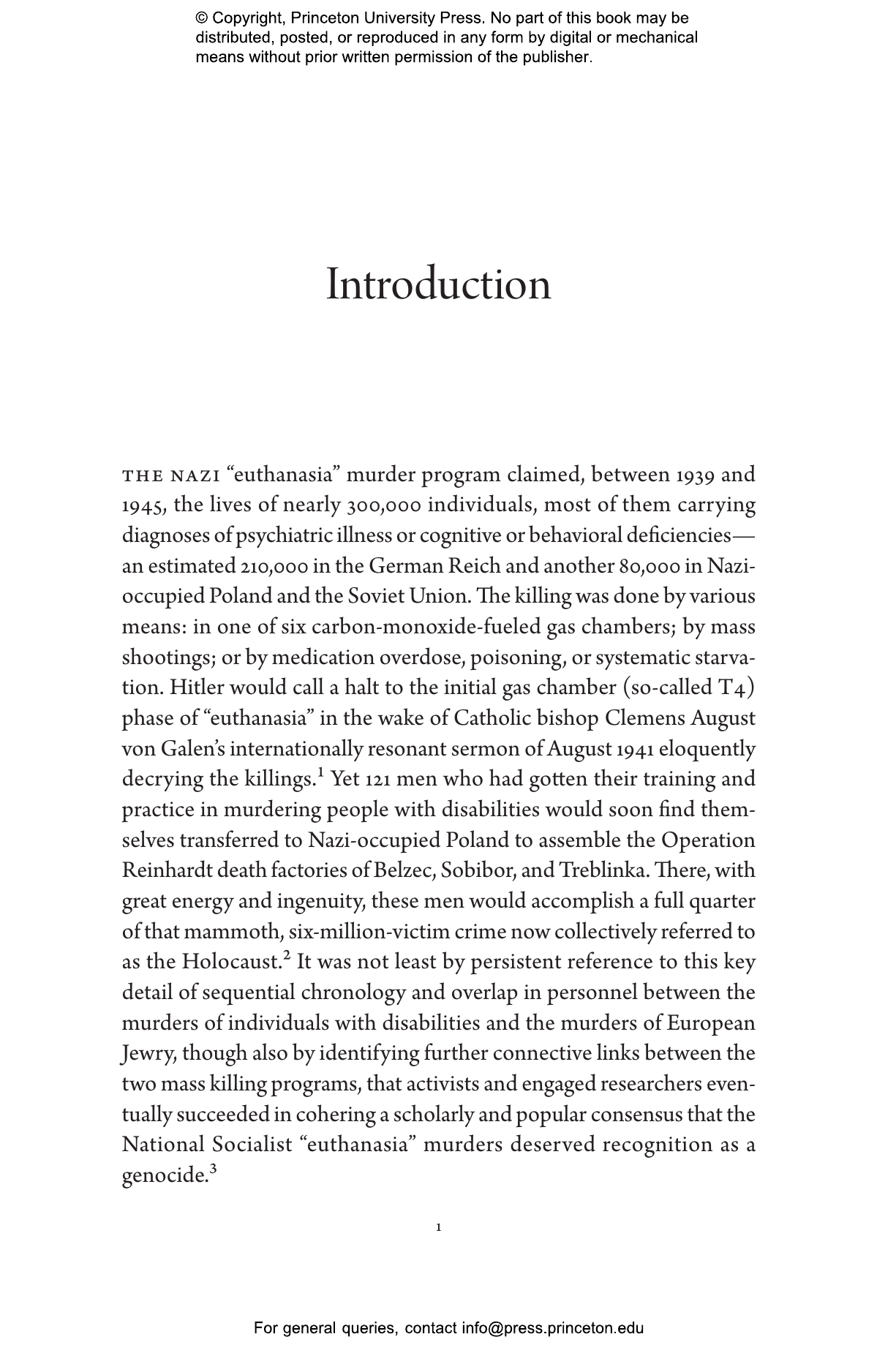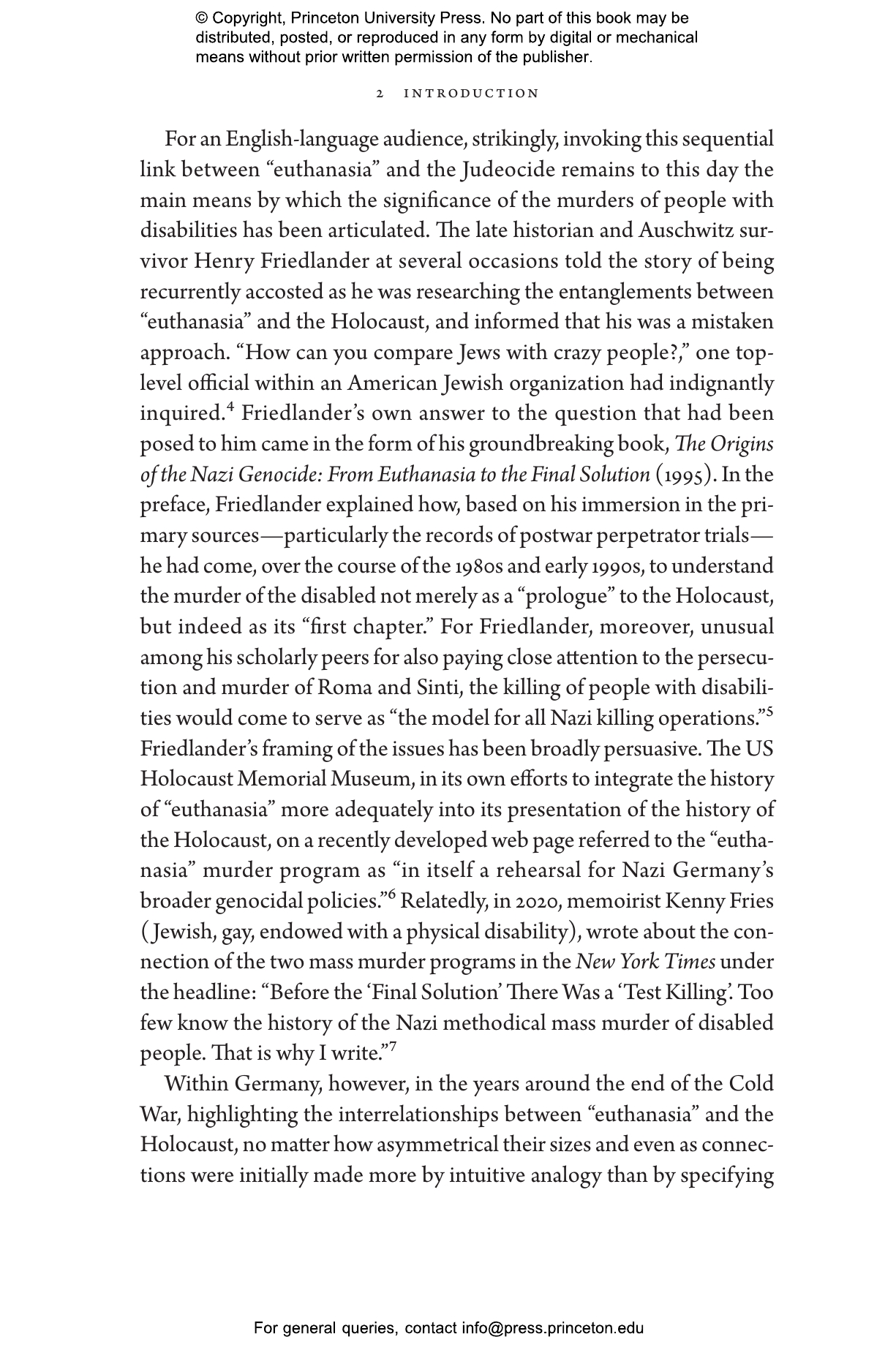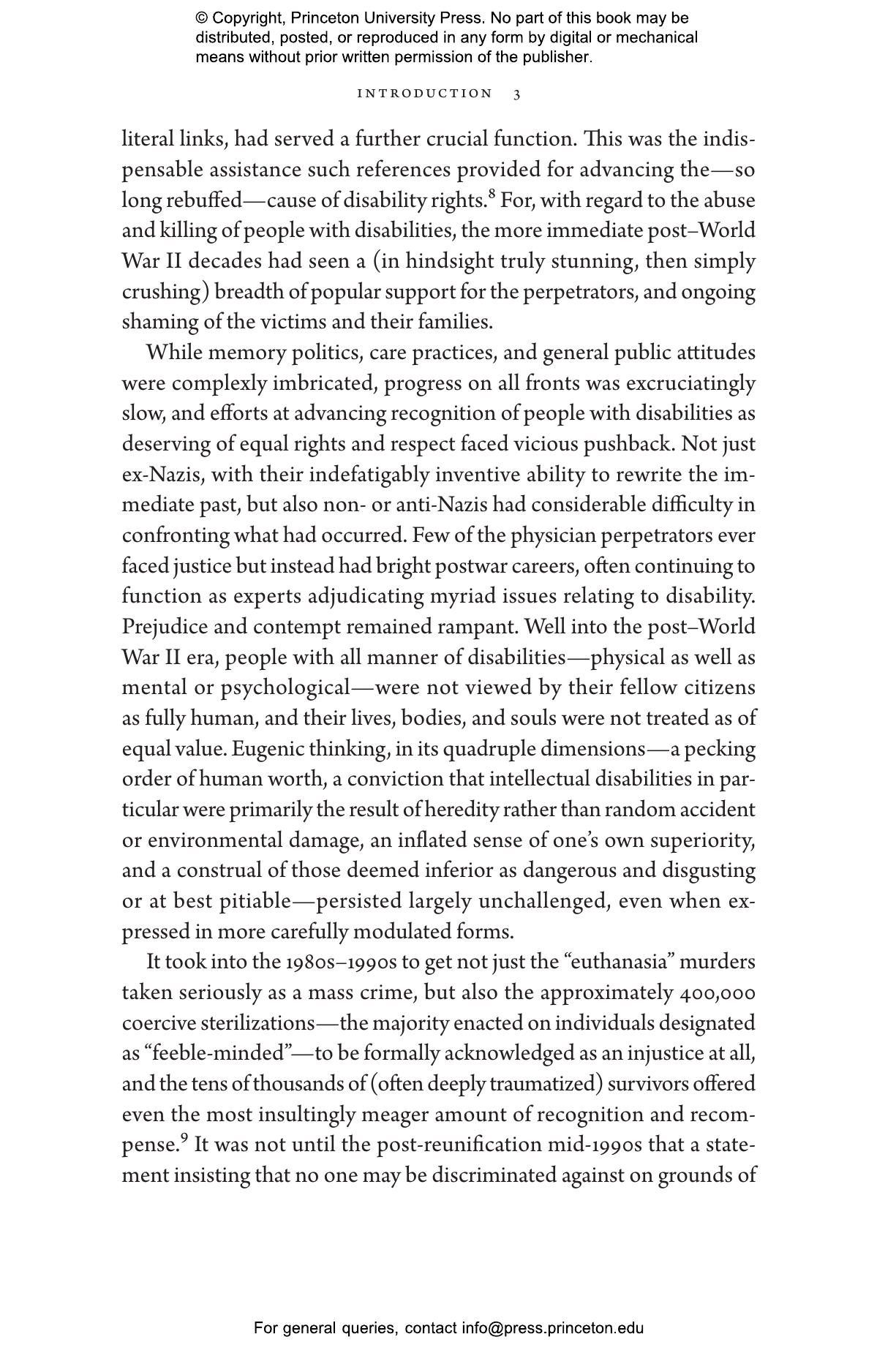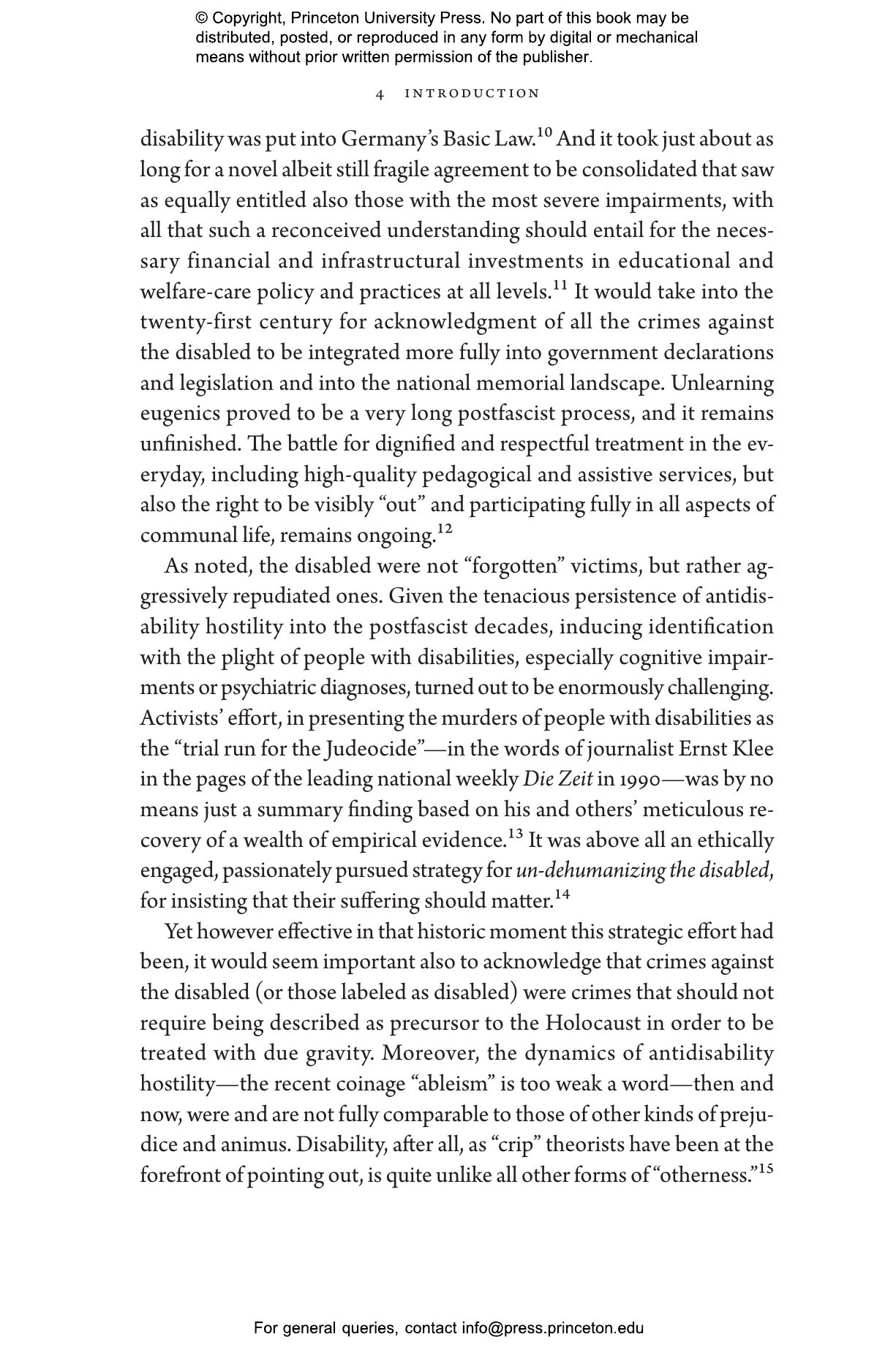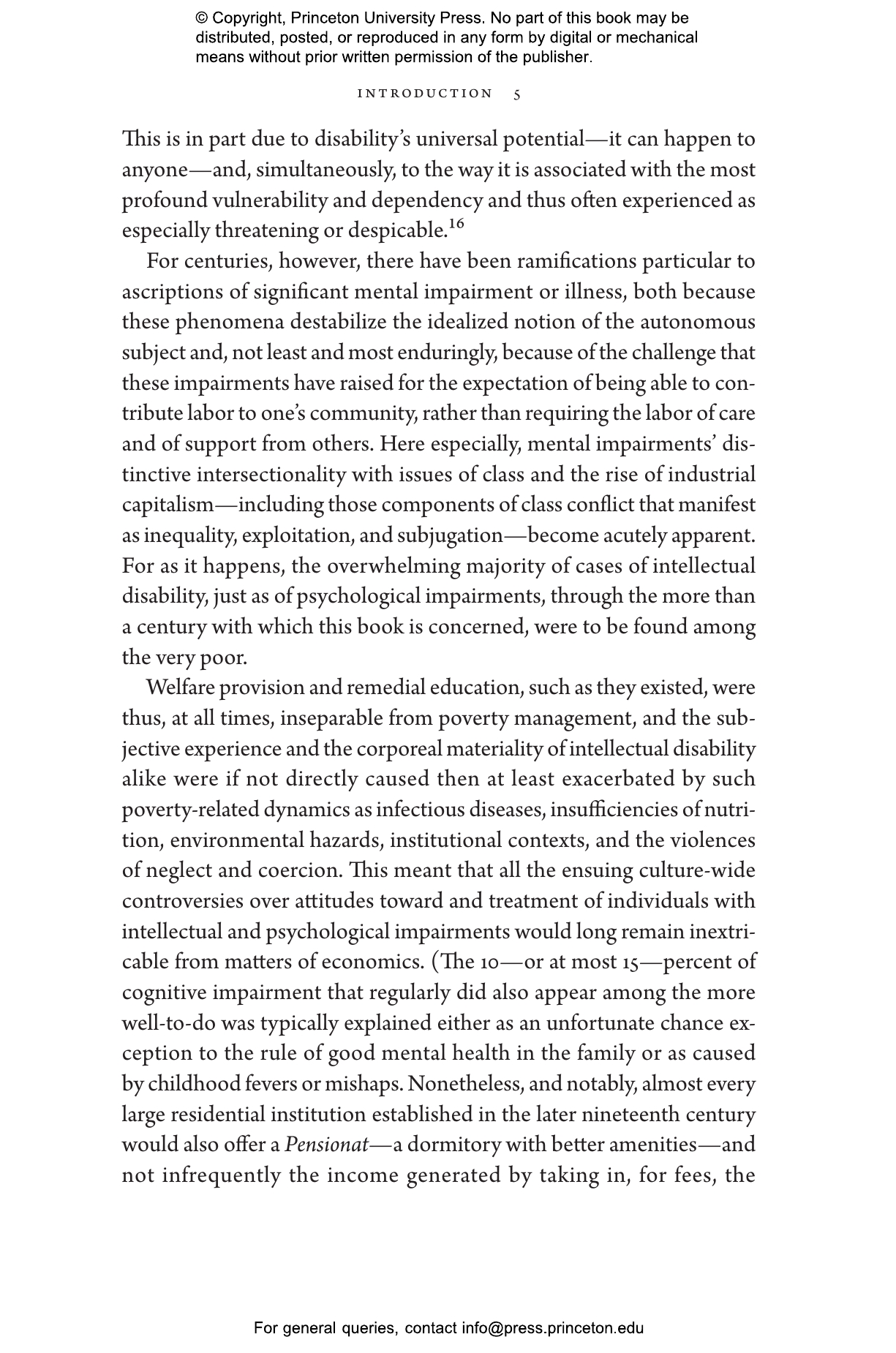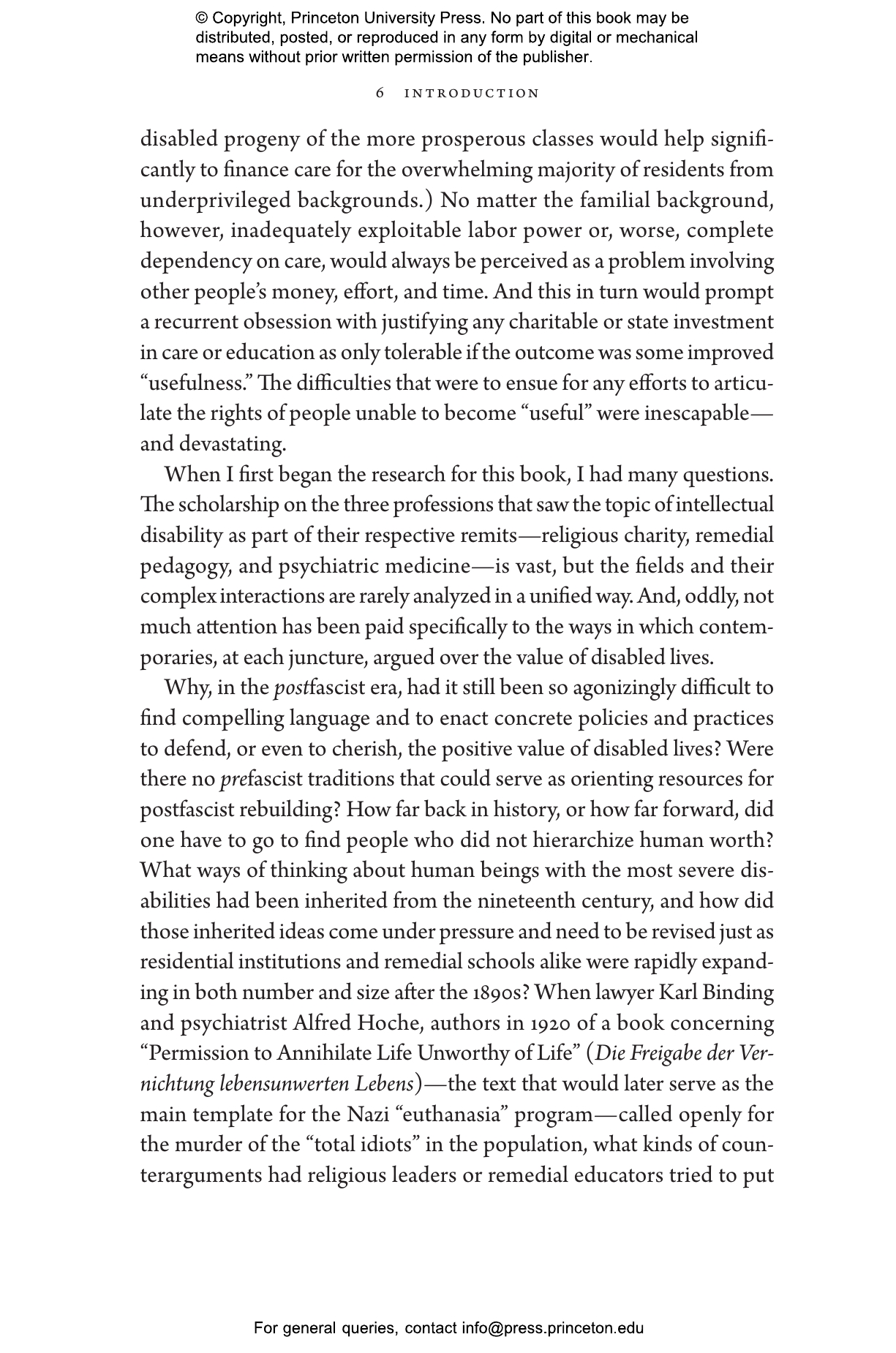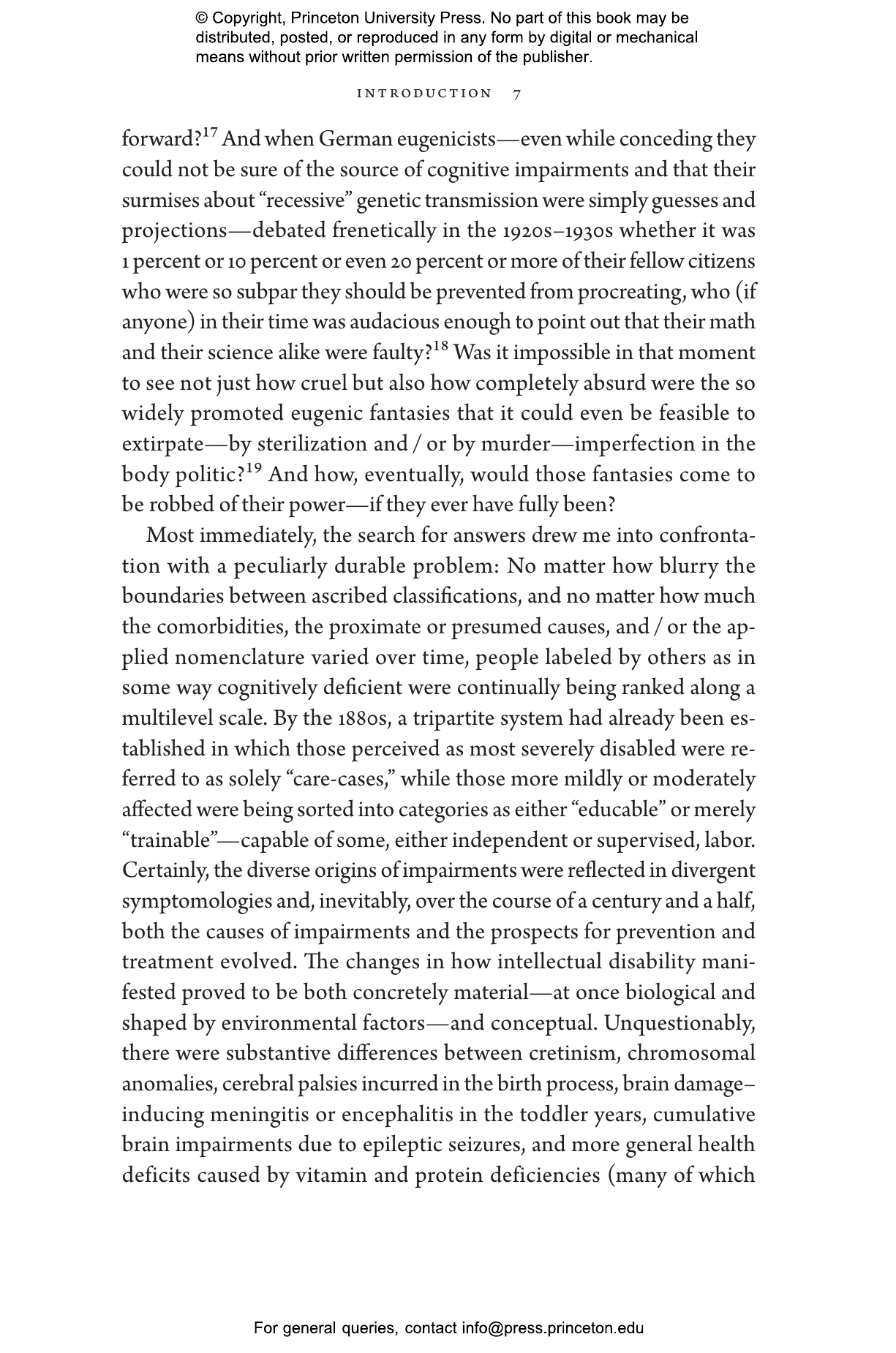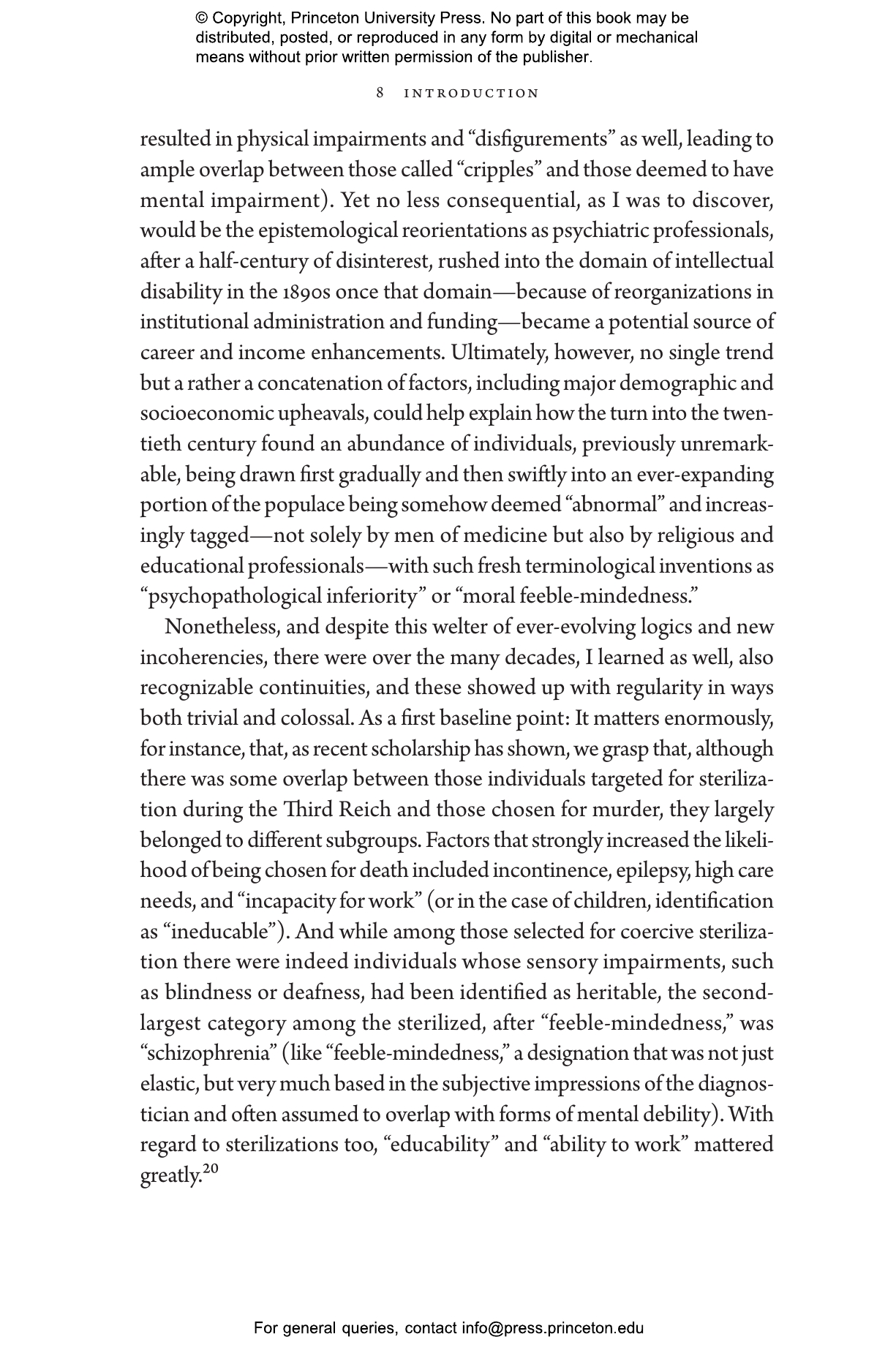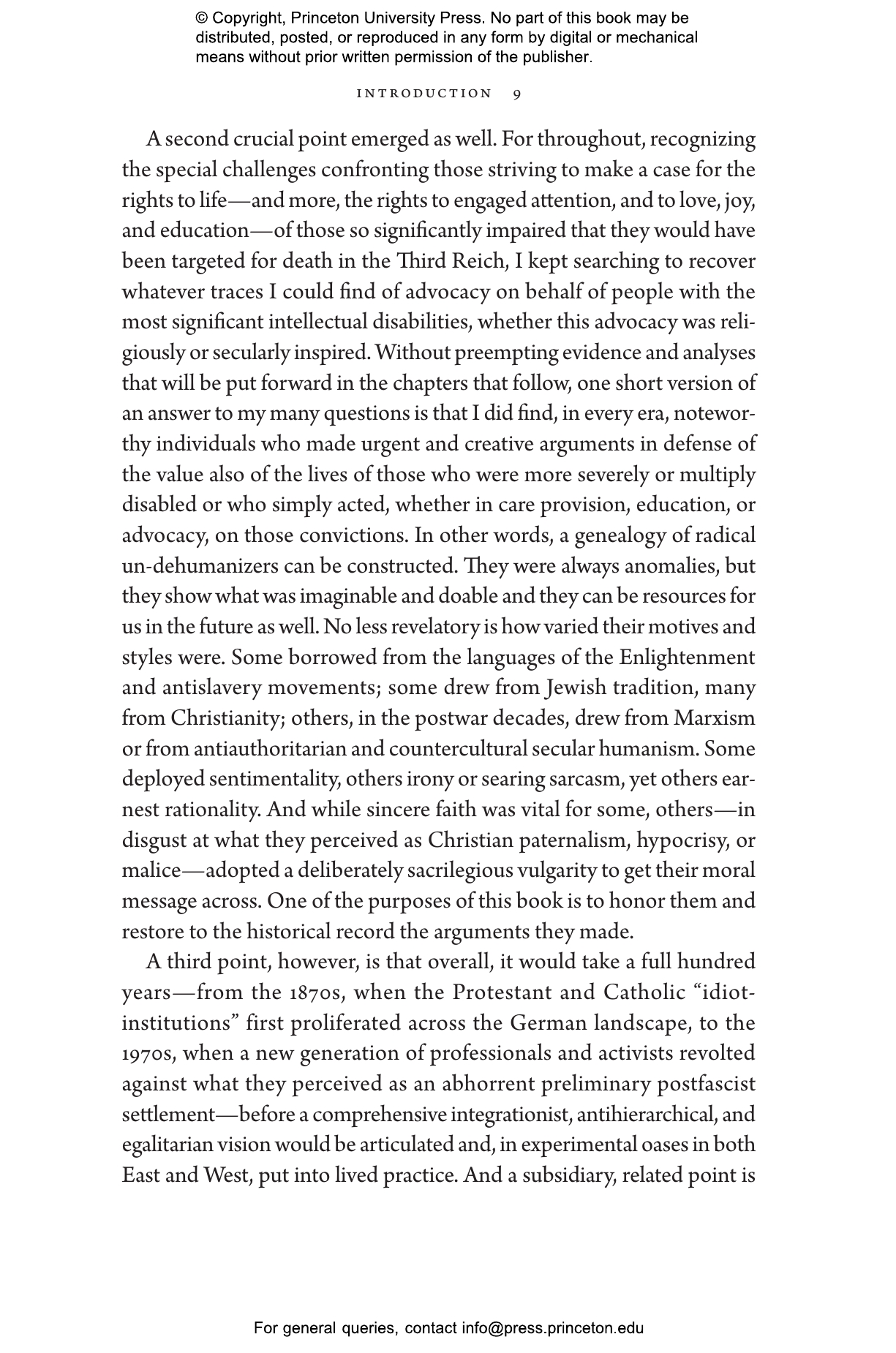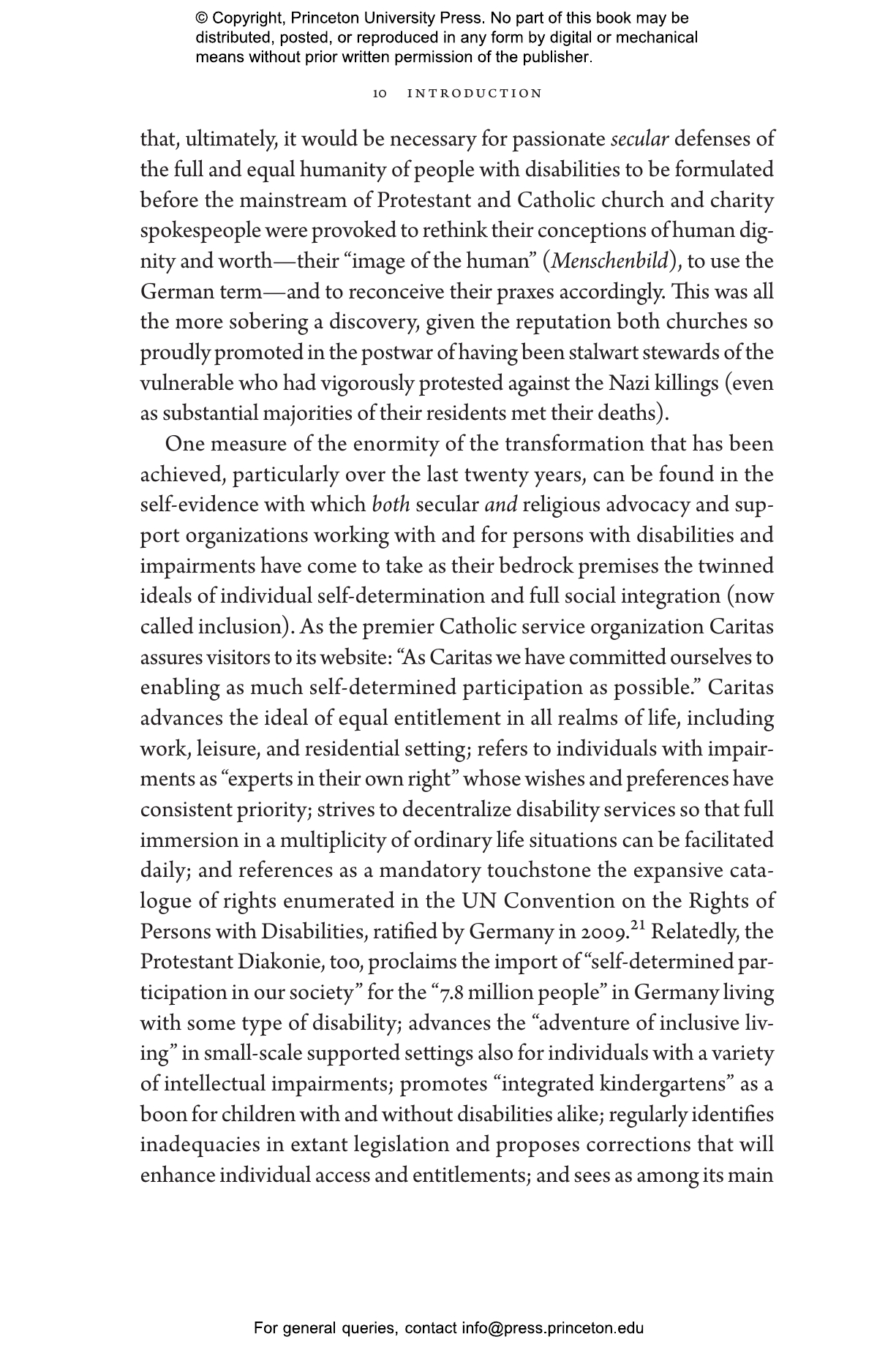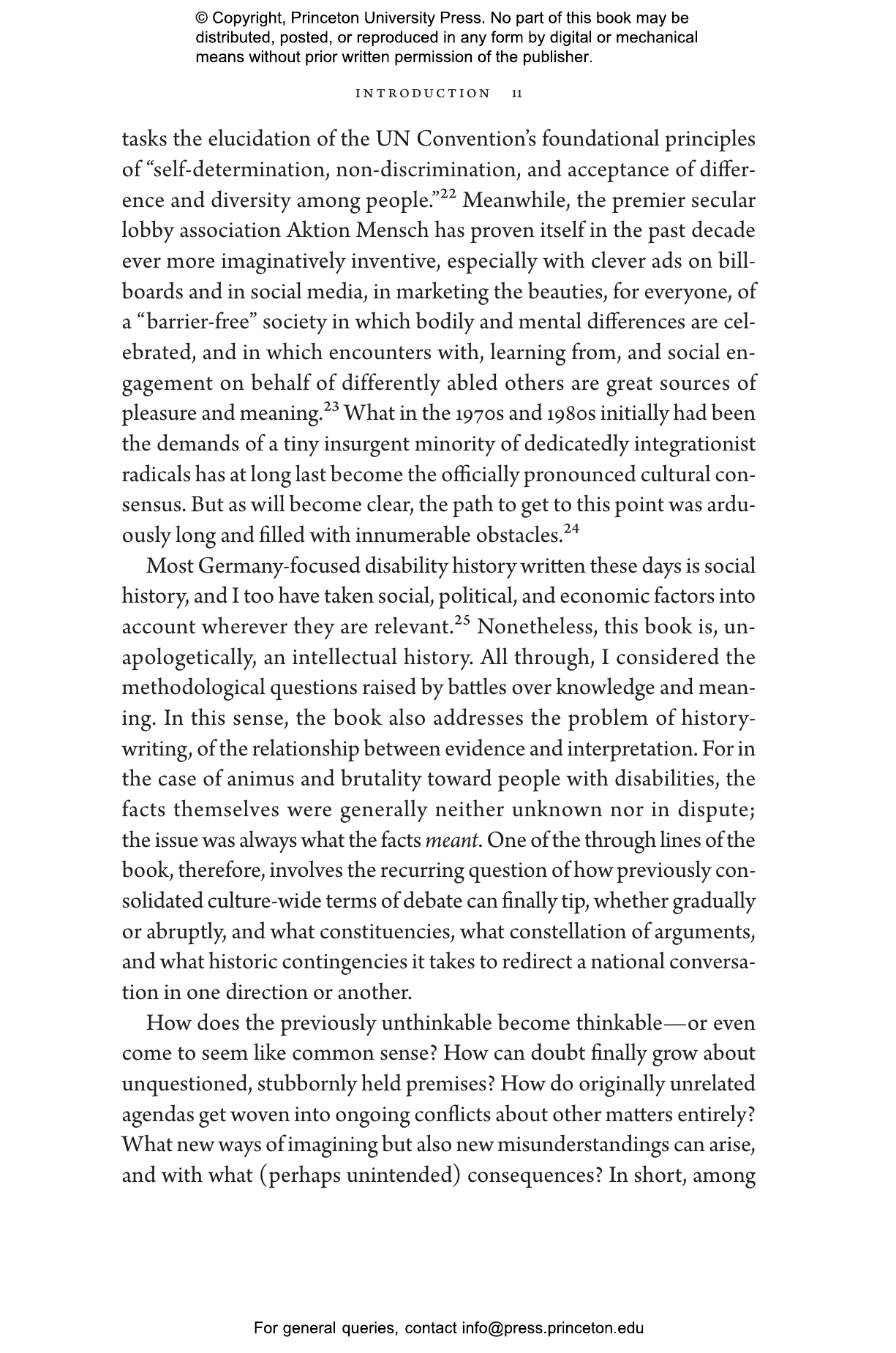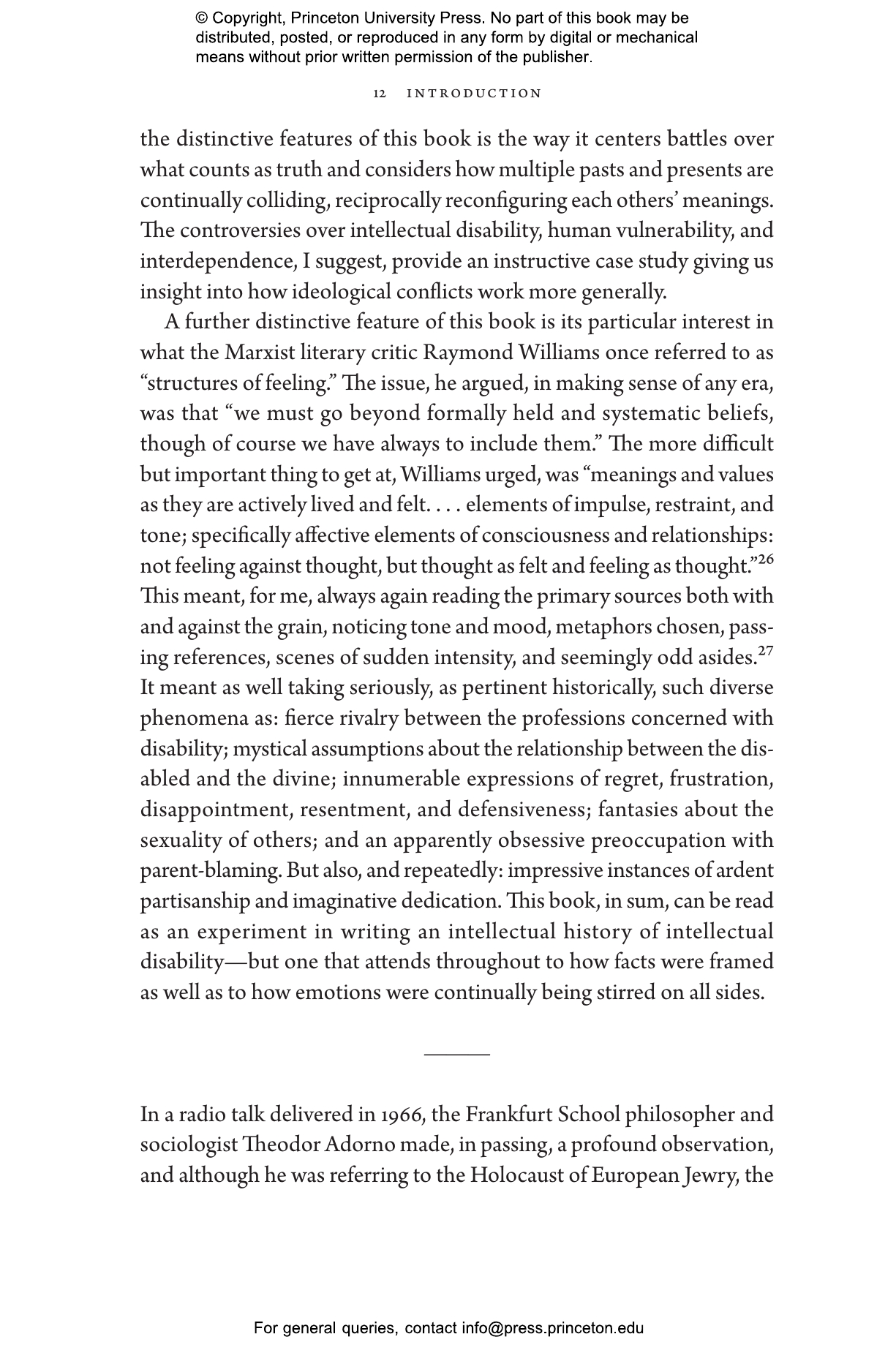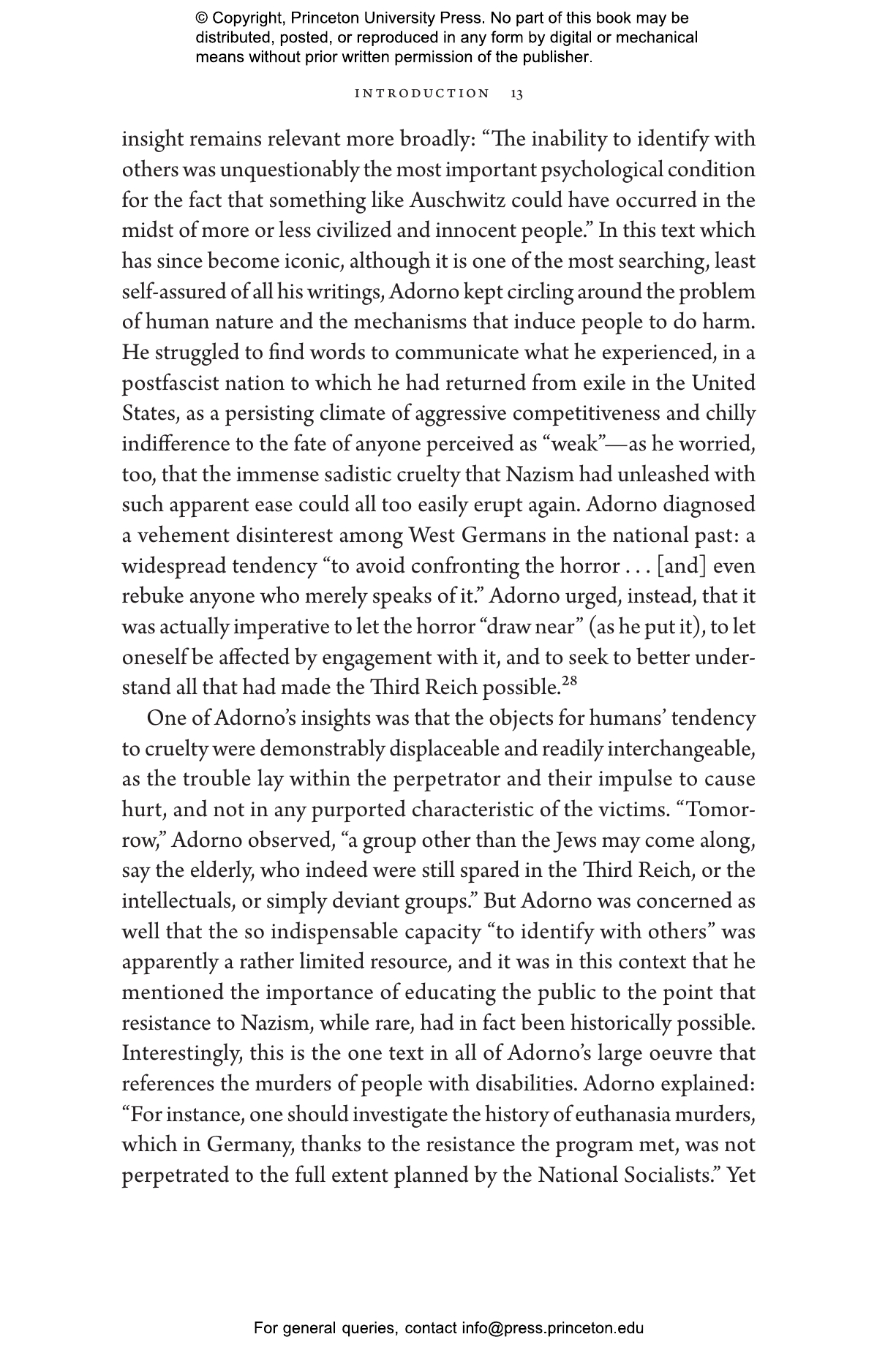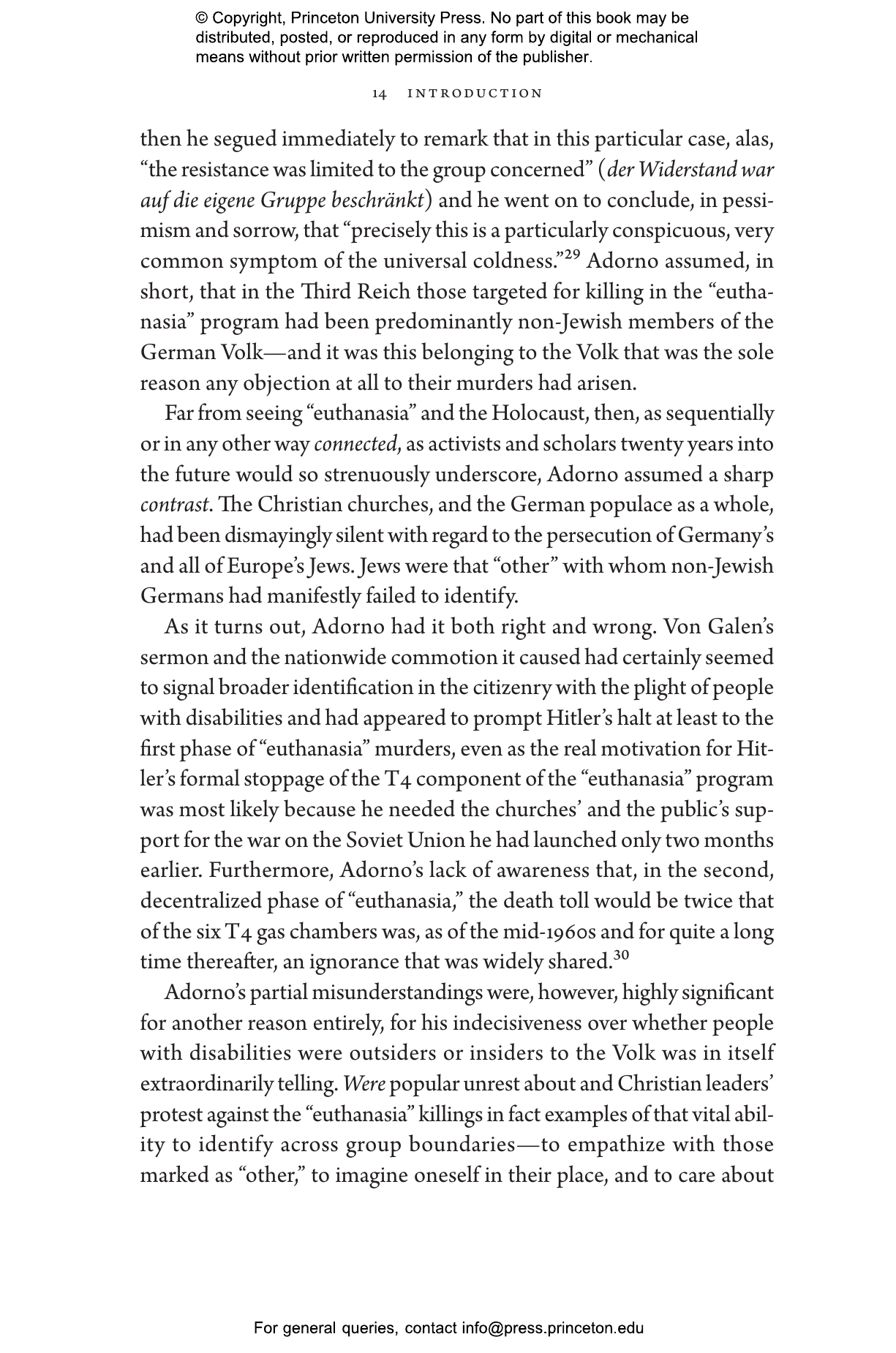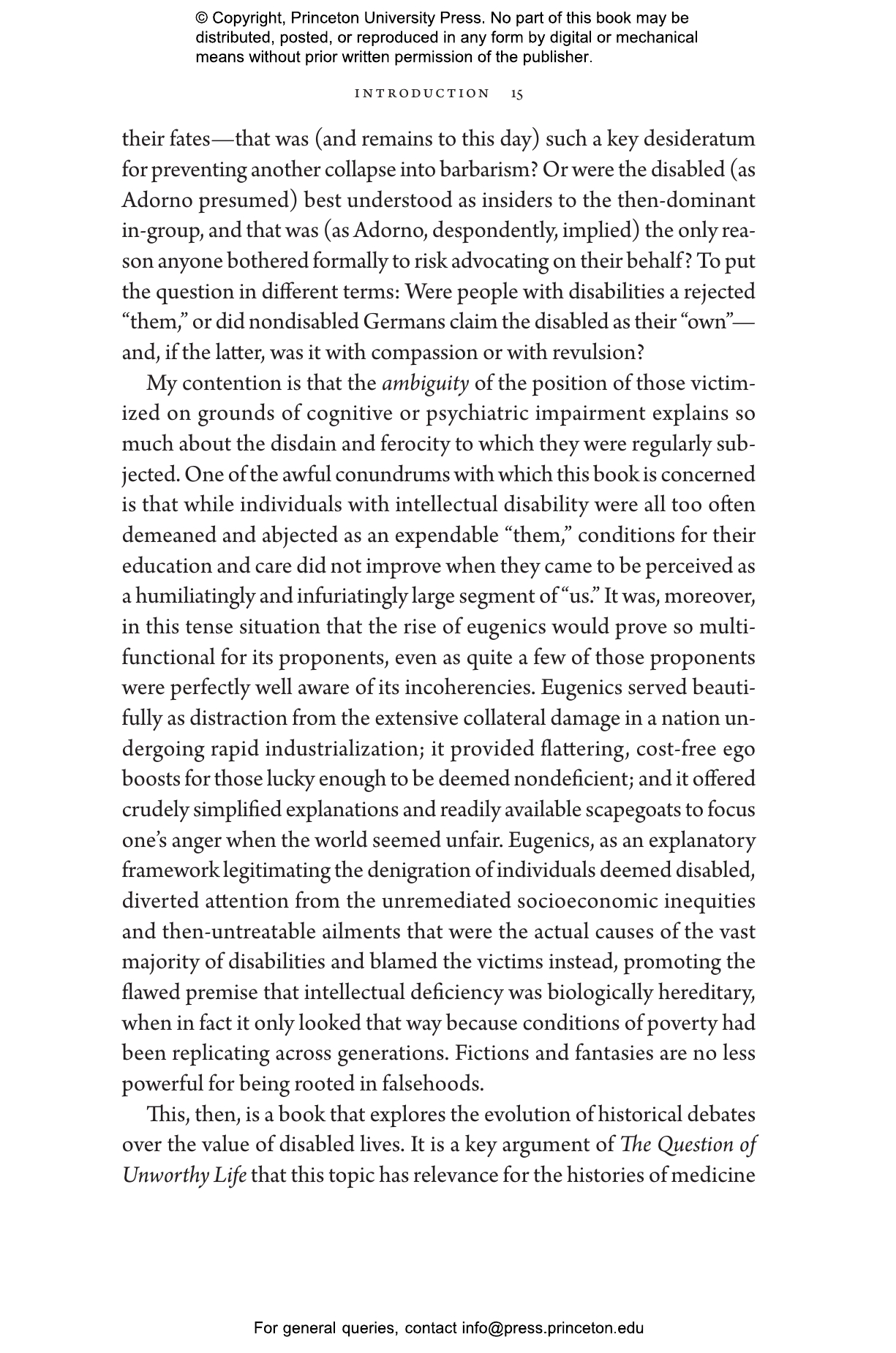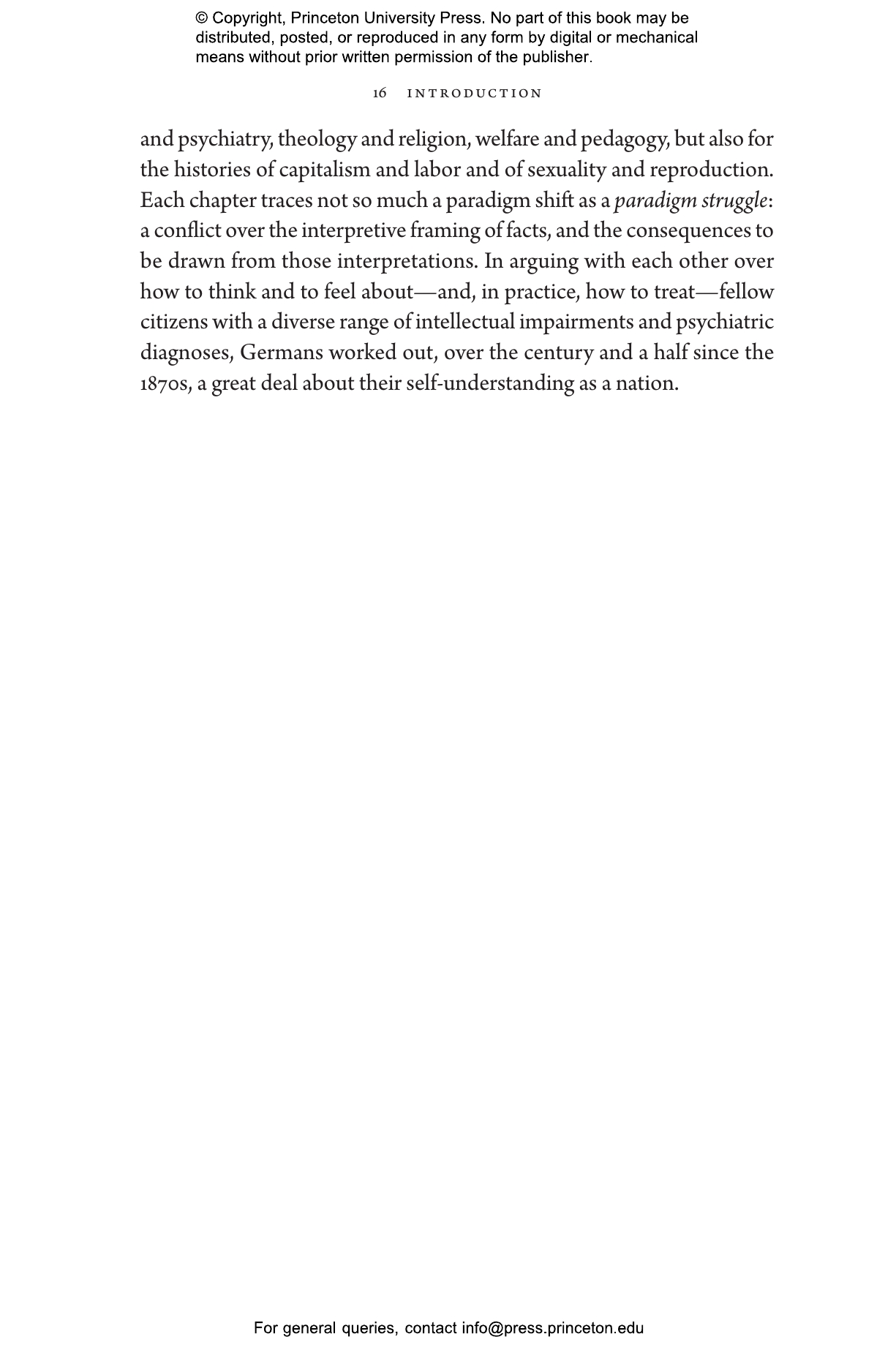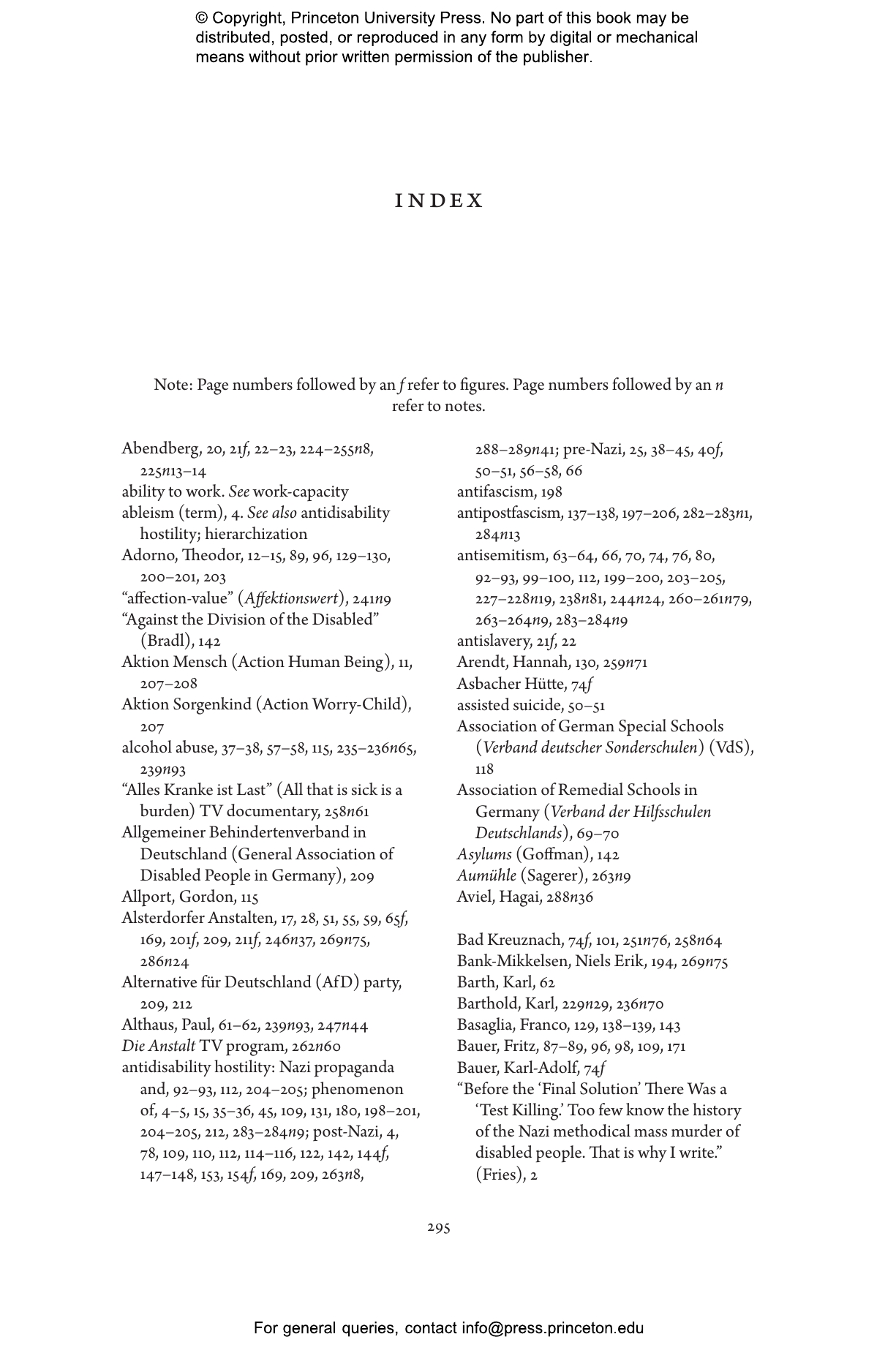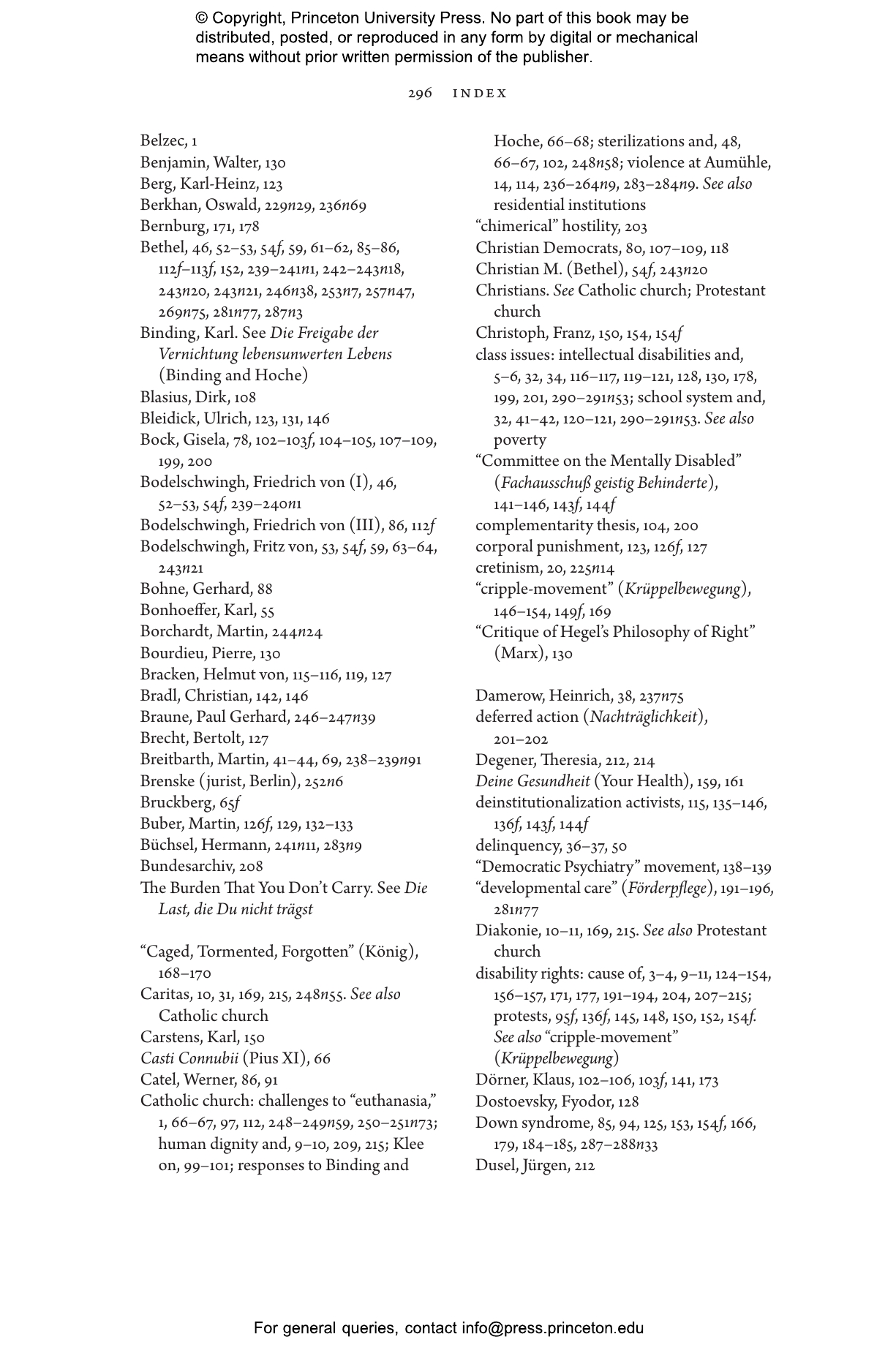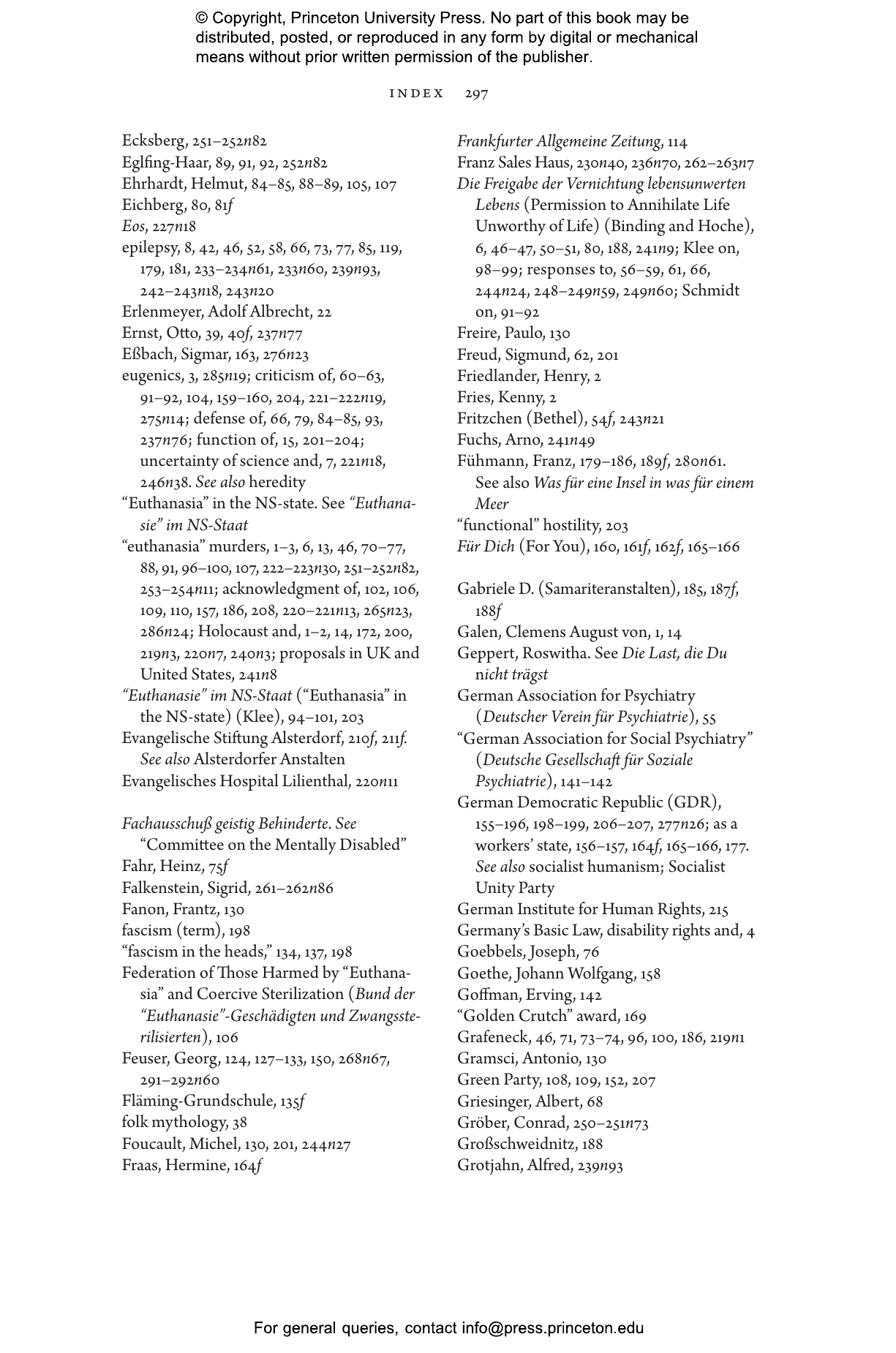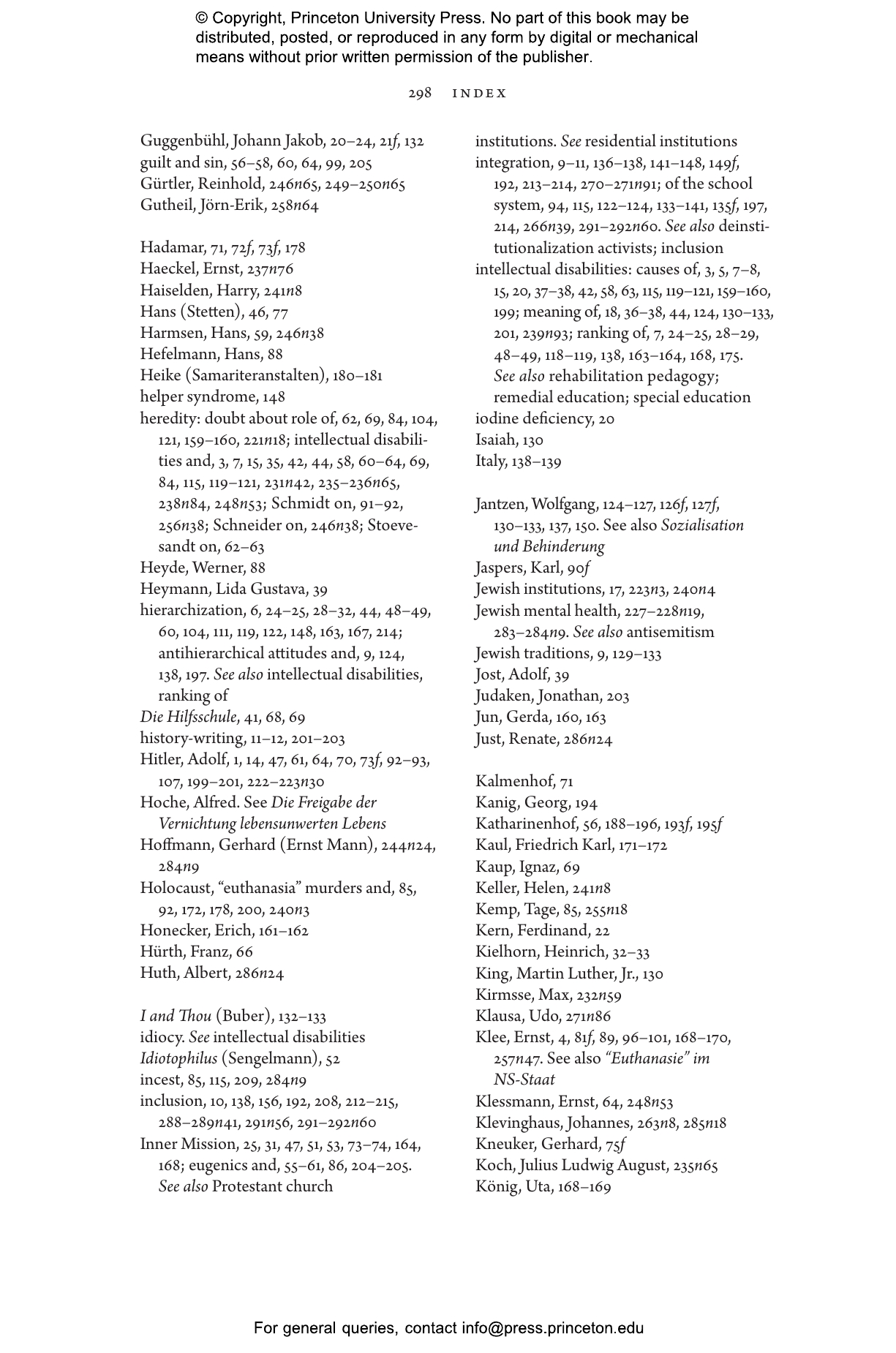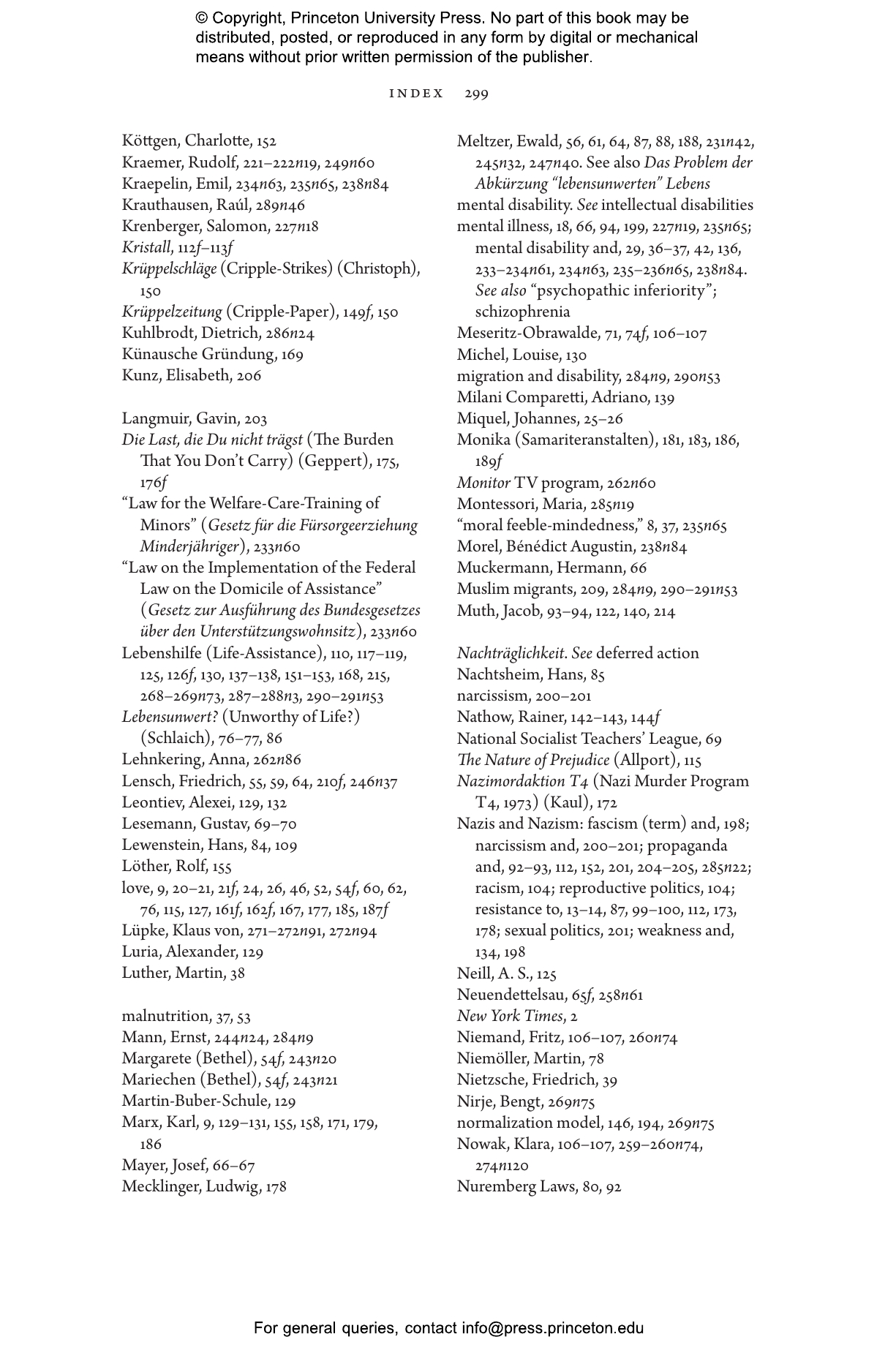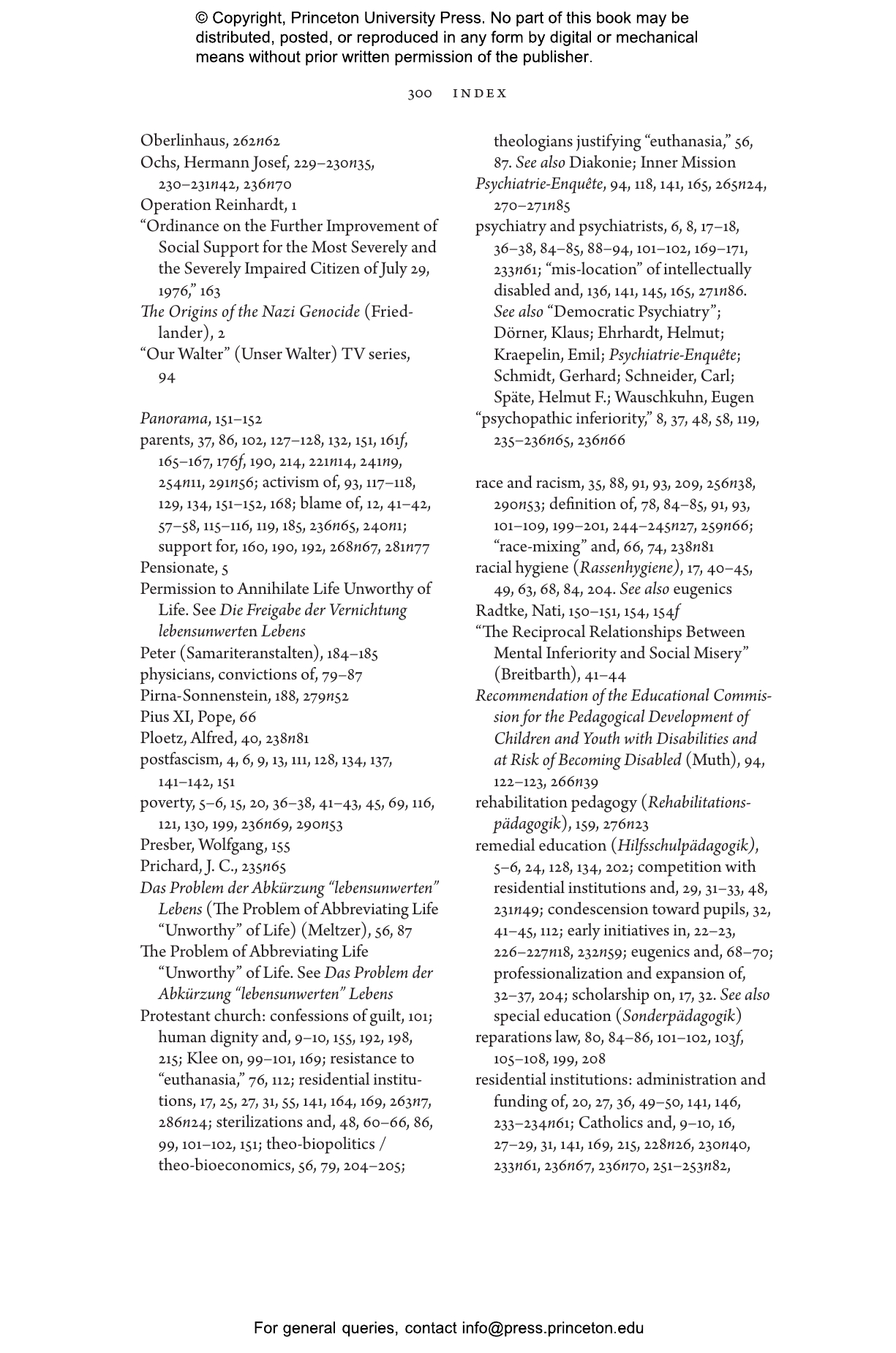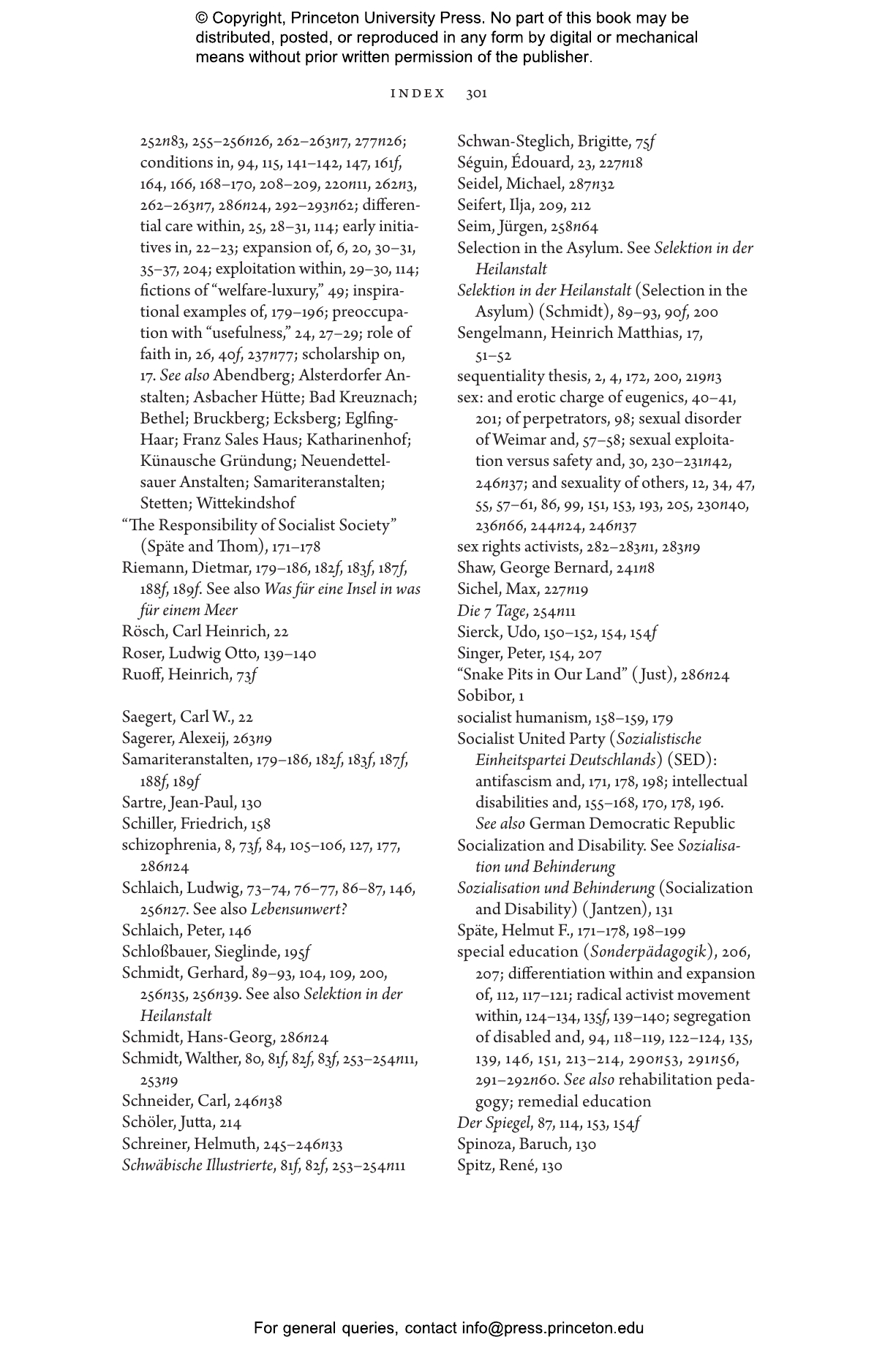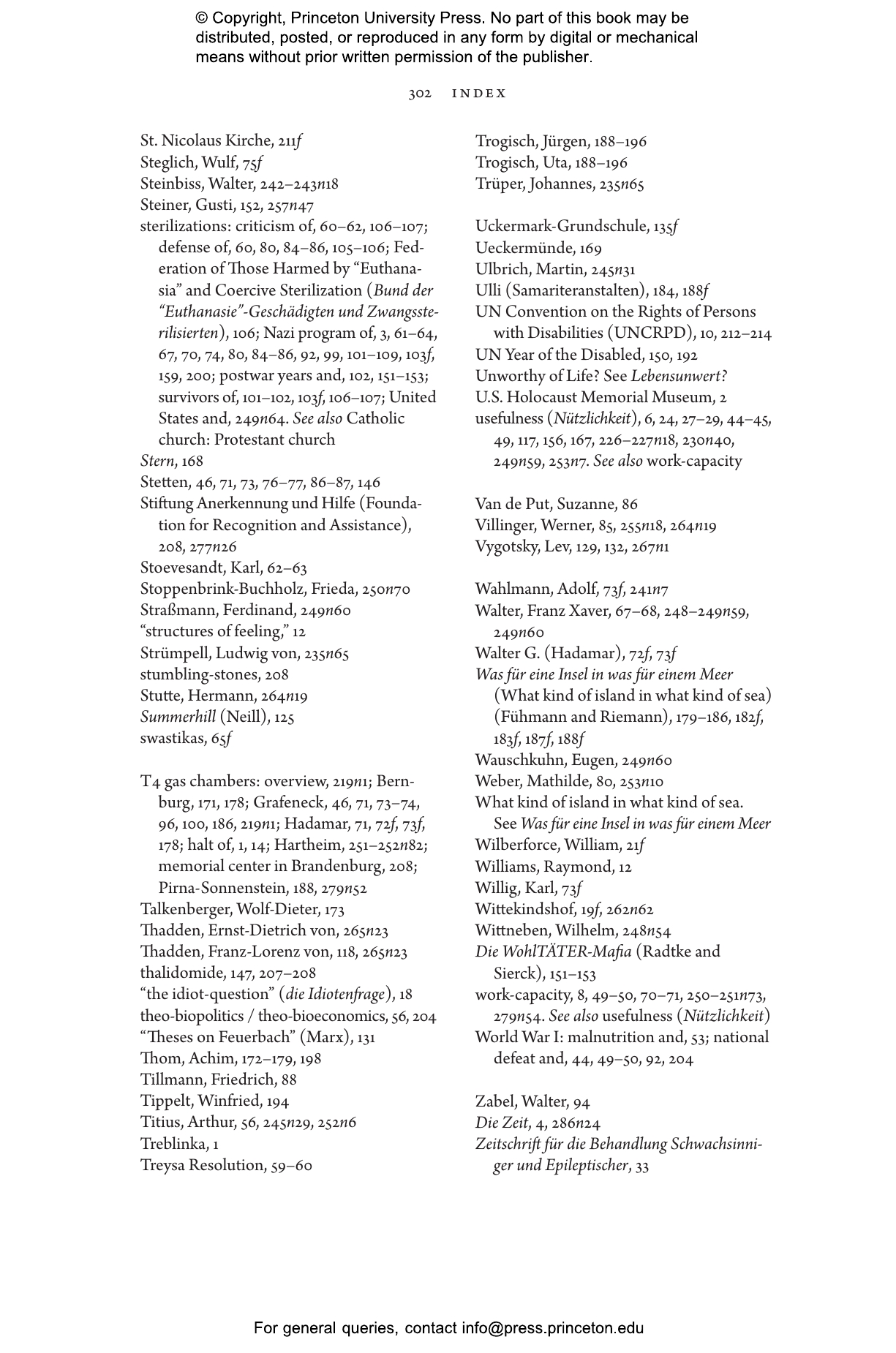Between 1939 and 1945, Nazi genocide claimed the lives of nearly three hundred thousand people diagnosed with psychiatric illness or cognitive deficiencies. Not until the 1980s would these murders, as well as the coercive sterilizations of some four hundred thousand others classified as “feeble-minded,” be officially acknowledged as crimes at all. The Question of Unworthy Life charts this history from its origins in prewar debates about the value of disabled lives to our continuing efforts to unlearn eugenic thinking today.
Drawing on a wealth of rare archival evidence, Dagmar Herzog sheds light on how Germany became the only modern state to implement a plan to eradicate cognitive impairment from the entire body politic. She traces how eugenics emerged from the flawed premise that intellectual deficiency was biologically hereditary, and how this crude explanatory framework diverted attention from the actual economic and clinical causes of disability. Herzog describes how the vilification of the disabled was dressed up as the latest science and reveals how Christian leaders and prominent educators were complicit in amplifying and legitimizing Nazi policies.
Exposing the driving forces behind the Third Reich’s first genocide and its persistent legacy today, The Question of Unworthy Life recovers the stories of the unsung advocates for disability rights who challenged the aggressive victimization of the disabled and developed alternative approaches to cognitive impairment based on ideals of equality, mutuality, and human possibility.
"Innovative. . . . The Question of Unworthy Life attempts to restore dignity to people with disabilities who have been treated inhumanely — precisely because their humanity has gone unrecognized."—Brian Hillman, Jewish Book Council
“Positively gripping. The Question of Unworthy Life presents in clear, concise, and compelling prose an extraordinarily dramatic and moving story, and one of profound human and political significance. Ambitious in scope, incisive in analysis, concise in exposition, and deeply researched, this powerful book will further cement Herzog’s stature as one of the most brilliant historians of Germany and Europe in her generation.”—Edward Ross Dickinson, University of California, Davis
“This remarkable book traces the long history of the idea that human beings should be understood and treated according to a hierarchy of worth, the solidification of that murderous idea into cultural common sense, and the very recent and ongoing efforts in Germany to advocate for the value of disabled life. Meticulously researched and powerfully argued, The Question of Unworthy Life is a stunning achievement.”—Regina Kunzel, Yale University
“With this powerful book, Dagmar Herzog offers us a lucid, painstakingly nuanced, and ultimately hopeful study of the longue durée of eugenic politics in modern Germany. Both unsparing and compassionate, Herzog’s incisive analysis reveals the durability of prejudice, cruelty, and condescension toward the disabled across time and regimes but also chronicles the unstinting efforts of some dedicated professionals and activists to recognize the humanity of even the most severely disabled. Confronting the hardest questions about the value of human life, Herzog insists on the possibility of change over time.”—Atina Grossmann, Cooper Union for the Advancement of Science and Art
“A sweeping, nuanced, and chilling intellectual history of German understandings of cognitive disability across the twentieth century. Herzog analyzes the persistence of eugenic thinking among those who denied the full and equal humanity of the disabled, blamed intellectual impairment on heredity rather than accident or environment, and ranked worth according to usefulness. This is a major contribution to the history of eugenics and medicine, disability history, and ongoing debates about continuities and ruptures in German history.”—Mary Nolan, New York University
“Dagmar Herzog’s magisterial conceptual and cultural history is a major scholarly achievement. Her broad canvas illuminates how, in the 1920s, eugenics became firmly rooted in religious care communities and inscribed in the German lexicon. She extends her powerful narrative from the postwar trials to the late 1970s, when social movements began to dislodge the hegemony of this vicious concept and alter the perceptions and care of disabled people. Comprehensive and compassionate, The Question of Unworthy Life is an incomparable guide to this dark episode of German history.”—Anson Rabinbach, Princeton University


